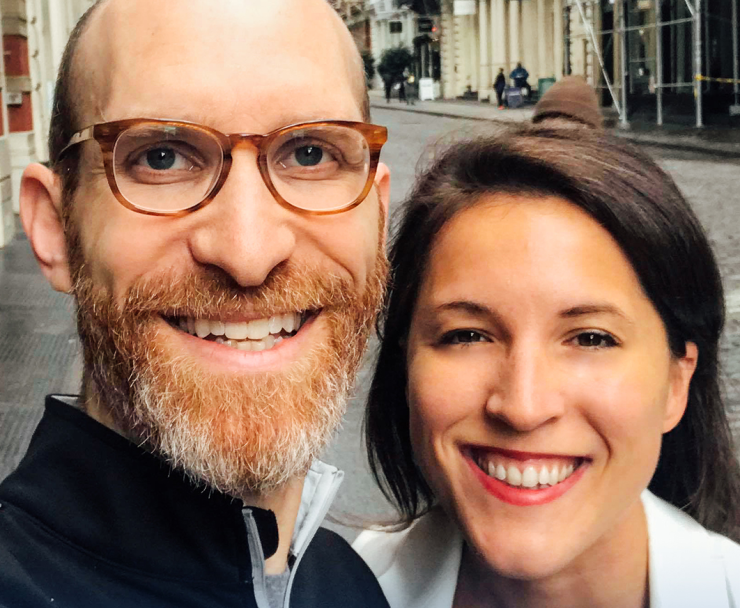Aiming to expand to Generation Z, the online student lender CommonBond has bought NextGenVest, an artificial-intelligence-powered hybrid advice platform serving high school and college students in New York, Chicago and Philadelphia.
NextGenVest offers coaching for students seeking college loans, helping them find money for college and complete the loan application process. The platform also helps its customers manage and budget their college expenses. Coaching is done either by human mentors or through AI-fed suggestions, delivered entirely through text messages.
The deal is the intersection of several emerging trends within wealth management, digital lending and banking that are tied to yet another entirely new wave of customer.
“Generation Z, the 18- to 23-year-old, has a very different approach to getting information,” said CommonBond CEO and co-founder David Klein. “You get Gen Z engagement right, their needs for products and advice over time will continue to exist and evolve.”
The price of the acquisition, announced Tuesday, was not disclosed.
CommonBond, which has funded over $2.5 billion in loans to date, will grow to more than 100,000 members once the acquisition is finalized. Kelly Peeler, founder and CEO of NextGenVest, will join CommonBond as vice president.

The service will be free for CommonBond borrowers, Klein said, and NextGenVest’s service will be expanded nationwide.
The financial services industry needs to understand that these young customers consider coaching services to be essential, Peeler said.
“For Gen Z, the cornerstone of financial identity and health starts with their student loan profile,” she said. “It is their first major financial decision and easily one of the most complex. It affects future financial decisions afterwards: what major they choose, their career, the city they choose to live in, if they will move home or buy a home. It really is driving everything moving forward.”
She emphasized that the Gen Z client is very different from the millennial client.
“What we’re doing might seem early, but what I would say is the shift from millennials to Gen Z will be just as abrupt as the switch to millennials,” she said.
“People are still trying to build brands for millennials. Good luck trying to do that again for Gen Z. They have totally different attention spans, understanding and brand authenticity levels. They are a new generation of consumers that acts and behaves differently.”
It is one major reason the service can be delivered by text, she said, noting that messaging is the medium most of her young customers have grown up with. Since launching a year and a half ago, NextGenVest has fielded more than 4 million text messages.
Another difference in the service compared with most other bank and wealth management offerings: The guidance is generated by mentors who are not certified financial planners or other license holders. Instead, they are Gen Z members themselves, often previous customers.
And as the AI generates material that mentors can use in advising clients, Peeler said, NextGenVest has been able to shrink the number of mentors needed to serve customers.
Peeler said NextGenVest had 80 mentors over a year ago. It now employs just 25 coaches to handle queries from its 65,000 customers.
“AI not only helps engage and reinforce strong guidance, it allows us to run a very efficient shop,” Klein said.
Klein acknowledged that CommonBond hopes to strike up a relationship with customers early enough that they can keep them as they mature. “Like any business, we are looking to broaden our customer base and our product base, and do it in a way that is authentic and consistent with our mission,” he said.
The acquisition followed CommonBond's recent announcement of a
CommonBond will maintain an “open posture toward bank partnerships,” Klein said, adding that he could “very easily imagine a number of banks with whom CommonBond partners for various and sundry things.”
Some fintech lenders such as SoFi have built financial advice offerings, while financial planners and banks are increasingly developing services to help millennials manage their student debt, observers said.
“It's a glimpse into the future of what loan providers will look like,” said Grant Easterbrook, co-founder of the 401(k) fintech Dream Forward. “Legacy loan providers can feel like an intimidating wall of legalese and complexity, and adding this platform brings CommonBond another step closer to what a millennial or Gen Z-er imagines the loan process should be like.”
Easterbrook added CommonBond was introducing experiences to such young customers that will make it harder “for the large players to compete for their dollars when they enter their prime middle-aged earning years.”
Lex Sokolin, director of fintech strategy at Autonomous Research, a U.K. firm, agreed with him. “I had a SoFi student loan,” he said. “They've introduced a 2% online bank — why wouldn't I use that, too?”
But Sokolin wondered if the approach would be as sticky among young clients like CommonBond claimed, noting the
“I’m not sure when coaching has worked, and LearnVest offers the brightest example of danger,” he said. “People buy solutions, not just emotional affirmation. There's definitely a place for YouTube videos of students talking about budgeting. But financial literacy is not the same as implementation.”




